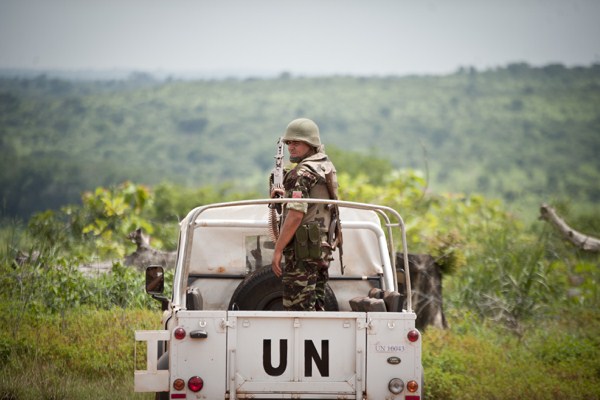Do peacekeepers do more harm than good? An appalling abuse scandal has come to overshadow the two parallel peace operations, led by France and the United Nations, currently based in the Central African Republic (CAR). There is credible evidence that French troops made local children commit sex acts as entertainment. The U.N. appears to have, at the very best, mishandled its investigation of these crimes.
To make matters worse, the U.N. announced last week that it is investigating further claims of abuse by its one of its own personnel in CAR. There are also claims that African peacekeepers were responsible for “enforced disappearance, torture and extrajudicial killings” there in early 2014. These revelations will sadly fail to shock anyone who has followed events in CAR in recent years. The country effectively collapsed when rebels overthrew the government in early 2013, sparking a spiral of sectarian slaughter that appeared to be escalating to all-out genocide late that year.
The small force of African peacekeepers that was already on the ground in 2013 apparently lost all discipline. Individual units allegedly sold their protection services to those locals who could afford them. France also had troops in the capital, Bangui, but initially tried to stay out of the fight. Paris only changed course in December 2013, when it deployed a larger force to try to restore order. African nations sent additional troops, providing the basis for a new U.N. mission—MINUSCA—in September 2014. The international response was slow, grudging and insufficient.

